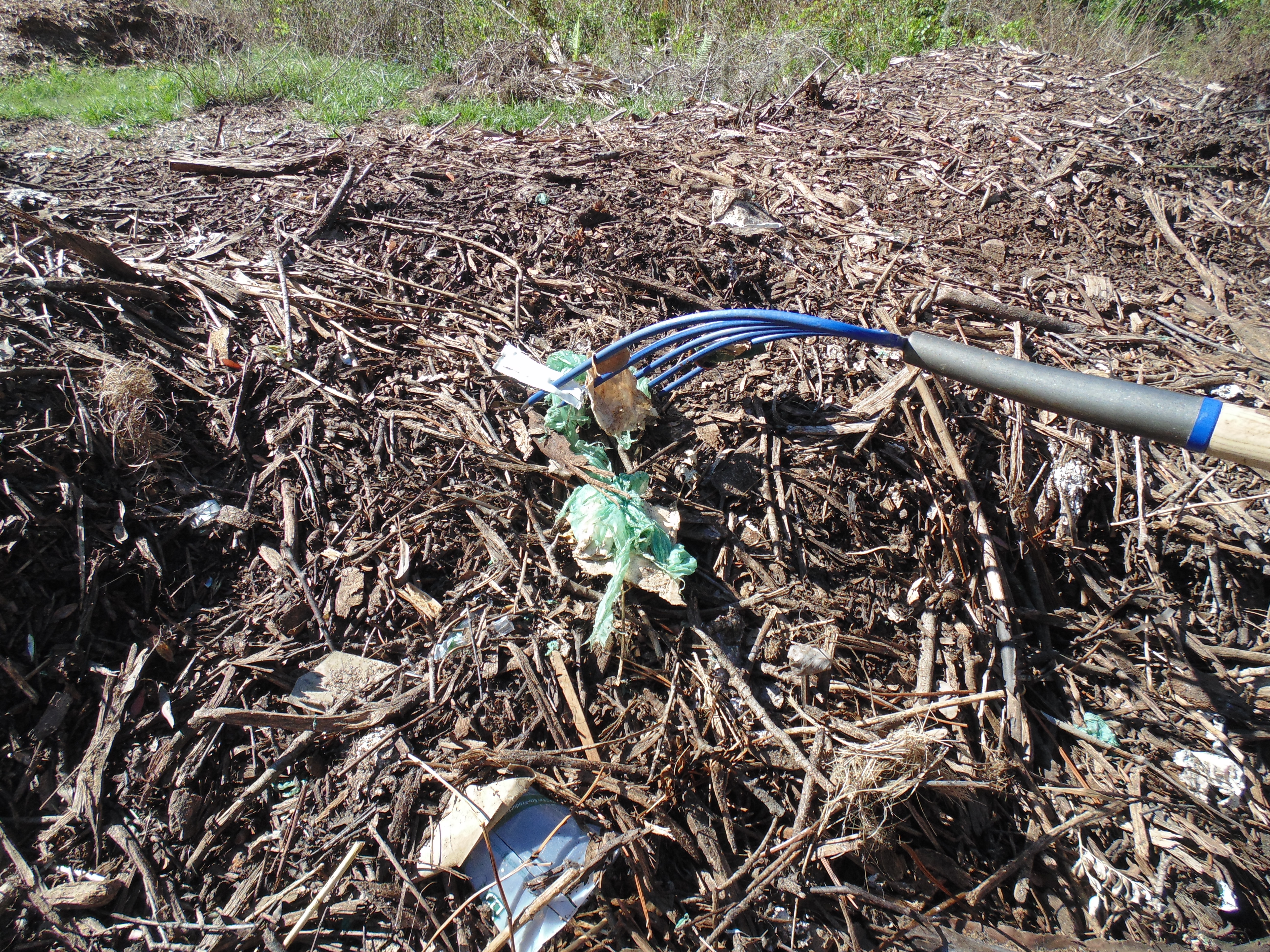
We all know that composting is good for the environment. It recycles nutrients, captures excess carbon, reduces demand for space in landfills, and makes sandy soil healthier.
Done, incorrectly, however, it can be major-league messy, incredibly stinky and attract bugs. It also requires space that people who live in apartments or condominiums may not have. If you have space and are looking for a way to reduce your waste stream, local extension services offer classes on composting (links to those calendars are at the bottom of this story), with many offering free compost bins to participants.
For Paul and Kali Rabaut, the desire to compost coupled with the challenges faced by some consumers created a business opportunity. Families and businesses pay a monthly fee for Suncoast Compost to take their compostable materials – and then get their completed compost back and ready to use twice a year.
“We’re just starting to distribute our first load of compost now,” says Kali. “It takes about six months at temperatures of least 105 to 140 degrees to break it down so it’s ready to use.”
Residential customers get compostable bags and can select curbside pickup for $29 a month or drop off their compostable materials at sites in Riverview, Seminole Heights or downtown St. Petersburg for $15 a month.
“This is one of the best services we have ever used,” says Howard Johnston of St. Petersburg. “Garbage disappears and comes back as garden compost (if you want it). With this service, my wife, Lucinda, and I have produced just one small bag of non-recycled, non-compostable trash in two weeks.”
Suncoast Compost also works with vendors at many of the area’s festivals and marketplaces who switch to compostable cups that can become part of an eco-friendly waste stream, Kali said. “It’s really amazing to watch them break down – but it does require temperatures over 110 that can be difficult for a backyard composter to achieve.”
Those high temperatures also make it possible for Suncoast Compost to accept waste materials that should never be included in a home compost pile, says Lynn Barber, agent at the Hillsborough County Extension. “Meat breaks down at very high temperatures but we definitely don’t recommend it for home composters,” she said. “It can spoil and attract animals that people don’t want in their backyards.”
It’s the high temperatures – and a farm setting – make it possible for Suncoast Compost to accept meat material from restaurants like Trinity Café which serves nearly 400 homeless people meals every day. “They sort their excess carefully so some people like pig farmers get first choice,” Kali adds.
Lush Cosmetics, which formulates hand-made cosmetics from fresh ingredients, also sees the benefits of composting. “Working with Suncoast Compost has been so pleasant,” says Jenny Branch, manager of the store at International Plaza. “The massive compost needs of our business have surely been no small order for them, and they have been nothing helpful and supportive every step of the way.”
The company has been an important part of helping CreativeMornings St. Pete become a zero-waste event, said Tara Segall, coordinator for the organization that is part of a global group with members in 183 cities and 64 countries. “It’s a chance for creative people to meet face-to-face rather than online with monthly breakfasts usually held on the third or fourth Friday of the month.
“Our goal was always to eliminate waste – members bring their own coffee mugs (or borrow one from our ‘library’) and eat their breakfast on recyclable napkins instead of plastic plates,” she said. “Sometimes we sacrifice décor like balloons or food events like yogurt parfaits that other CreativeMornings groups might serve because zero waste has always been a top priority.”
 When it celebrated its first anniversary in January, five local bakeries agreed to contribute cakes for the event – but then Segall realized that paper napkins wouldn’t work. “I called Kali and she came up with compostable plates and a library of forks so we were still zero waste. She and Paul have been invaluable partners and help us remain constantly vigilant about waste.”
When it celebrated its first anniversary in January, five local bakeries agreed to contribute cakes for the event – but then Segall realized that paper napkins wouldn’t work. “I called Kali and she came up with compostable plates and a library of forks so we were still zero waste. She and Paul have been invaluable partners and help us remain constantly vigilant about waste.”
Business customers of Suncoast Compost, particularly those where employees may leave leftovers in refrigerators, like that they can just dump the waste in a compostable bag and not worry about the environmental impact of throwing that much food away, Kali adds. “Mikel’s Paul Mitchell Experience in Tampa serves its customers expensive French-pressed coffee. We compost the grounds and employees use the business as a drop-off point for their own waste.”

Food waste consumes an enormous amount of water, petroleum (in the form of chemical fertilizer) and pesticides, and often ends up in a landfill “If wasted food was a country, it would be the third largest emitter of carbon after the U.S. and China,” says Paul, a biology professor at Hillsborough Community College. “We make it easy for people to turn what could have been wasted food back into food.”
Update: In Summer 2019, the city of St. Pete offered residential compost bins.
For local composting classes:
Hillsborough County Extension: https://www.eventbrite.com/o/ufifas-hillsborough-extension-8606873308, including a three-for-one on composting, rainwater harvesting and microirrigation on May 5.
Pasco County Extension: https://www.eventbrite.com/o/ufifas-pasco-county-cooperative-extension-7831617239, including a compost workshop on April 28.
Manatee County Extension: https://www.eventbrite.com/o/ufifas-extension-manatee-county-8304772301, including a compost workshop on May 12.
Pinellas County Extension: http://sfyl.ifas.ufl.edu/events/?location=pinellas
It is important for us at Bay Soundings to bring you information you may find interesting or useful. Reference in this article to any specific commercial product or organization name is for informational purposes and does not constitute endorsement, recommendation, or favoring by Bay Soundings.
If you are interested in exploring composting more, check out our Pinterest Board for more ideas!
